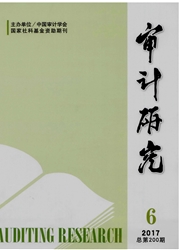

 中文摘要:
中文摘要:
We develop a model to illustrate that controlling shareholders choose the level of investor protection that maximizes their own interests. Controlling shareholders in companies with complicated control structures can easily extract private benefits and are thus reluctant to enhance investor protection which would necessitate increased transparency. In contrast, controlling shareholders in companies with valuable growth opportunities are willing to improve investor protection so that they can benefit from the increased value resulting from the lower cost of capital. We test this prediction using firm-level data in China. The results show that the level of investor protection increases with decreases in control structure opacity and increases in growth opportunities. The correlation is more significant for enforcement than for the mechanisms of investor protection.
 同期刊论文项目
同期刊论文项目
 同项目期刊论文
同项目期刊论文
 期刊信息
期刊信息
